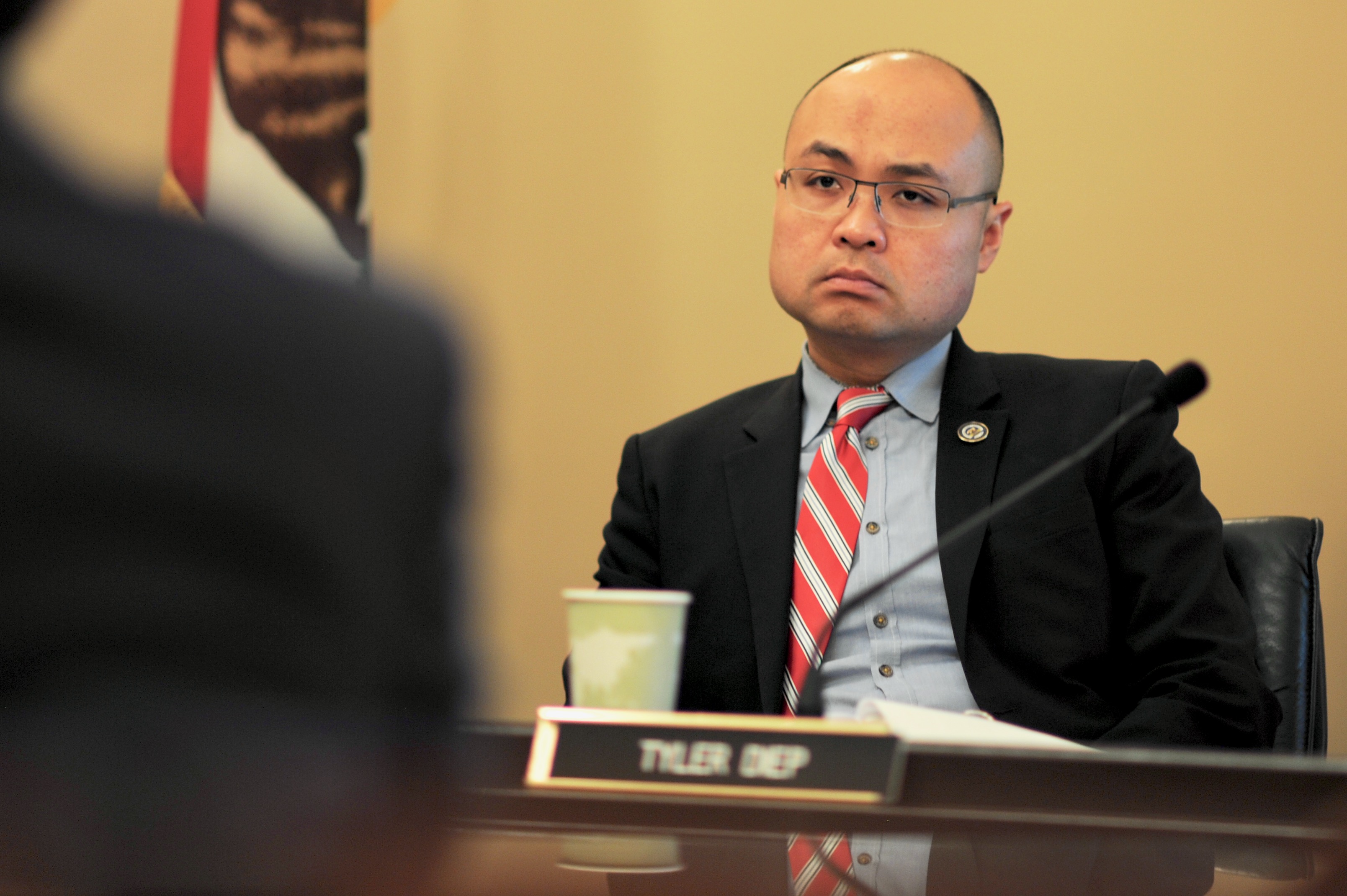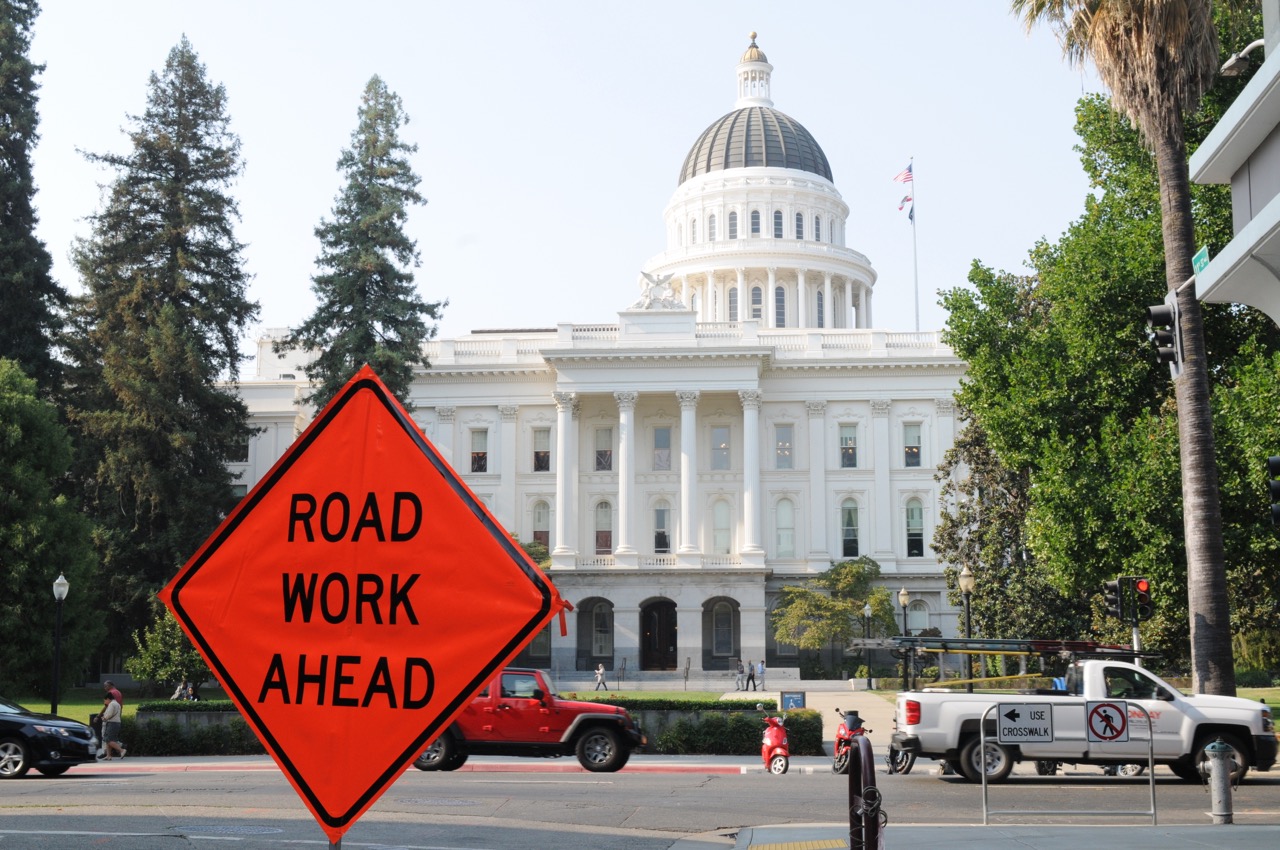
Powerful Public Sector Unions, Public Safety Compensation, and Actual Public Safety
…United in their goal to pay themselves as much or more than public agencies can afford
By Edward Ring, February 25, 2020 6:45 pm
Public sector unions are by far the most powerful special interest in California. And they are united in their goal to pay themselves as much or more than public agencies can afford, which shields unionized public servants from the worst effects of the laws (which they almost always support) that have made California’s cost-of-living the highest in the nation. But there are also significant differences between the various public sector unions in California.
Whatever else one might say about public safety unions, they have not undermined the quality of their profession. To the extent public safety in California is compromised, for the most part that is caused by policies the public safety unions unsuccessfully opposed including Prop. 47, Prop. 57, AB 109, and AB 953.
This is in sharp contrast to California’s teachers unions, which by their opposition to charter schools and desperately needed union work rule reforms such as attempted in the Vergara lawsuit, make unconvincing their claims to care about results.
Any criticism of public safety unions should be in this context. Nonetheless, the case must be made that police and firefighter compensation in California has reached a level where at the least it is appropriate to replace their services whenever possible with less expensive solutions.
With respect to firefighters, an example of this can be found with private ambulance services which can, and often do, replace firefighter personnel to respond to medical emergencies. This solution can save municipalities millions of dollars, and can make economic sense without compromising the quality of service.
With respect to law enforcement, an example can be found in Newport Beach, where the issue is whether or not their harbor patrol requires deputy sheriffs, or if those services can be more efficiently performed by local law enforcement and city harbor patrol personnel. The financial impact of this choice is significant.
Using data available on Transparent California, according to analysis performed by local residents who know the names of the deployed personnel and could look each of them up individually, Harbor Patrol Officers and Harbor service workers earned, on average, total compensation in 2018 of $61,176. Even the park rangers employed by Newport Beach, which have “limited peace officer” status (including the power to make arrests) only averaged $84,740 in total compensation. This figure includes everything, base salary, overtime pay, current benefits and the employer’s pension payment.
By contrast, the same analysis showed the average total compensation of Orange County Harbor Patrol Officers assigned to Newport Harbor in 2018 was $291,571. Despite this amazing disparity in compensation, there is a strong case that the services of these Orange County Sheriffs are not required in Newport Harbor.
These figures are clearly debatable. Because most of California’s cities and counties (including Orange County) no longer include in their reports to Transparent California (or to the State Controller) a per employee cost of paying down their unfunded liability, Transparent California adds in their own estimate of that cost. In the case of Orange County, the unfunded liability is now $5.4 billion. Since continuing to fund and pay pensions depends on covering that liability, it’s hard to argue it doesn’t constitute part of total compensation. Also not added in these reports is the present value of the eventual cost for retiree health benefits.
Despite the particulars of this case, however, these personnel policies deserve urgent debate. Should sheriff deputies perform routine inspections and write up minor infractions? Should firefighters respond to medical emergencies? Why, when qualified specialists, often from private firms, can do this work just as well for less money?
Proponents of replacing county sheriffs with local employees make the following arguments. First, as documented by Frank Kim, the Executive Officer of Orange County, in a memorandum to the Board of Supervisors in August, 2018, only 3 percent of “hours spent in response to calls” in Newport Harbor were for criminal activities.” This means that 97 percent of the calls could have been handled by harbor service workers or limited peace officers employed by the City of Newport Beach at far less cost.
Another objection to replacing county sheriffs with local services is that the sheriffs “handle issues in the harbor, outside the harbor, and homeland security,” which supposedly means “the taxpayer is getting a bargain.” But in reality the Coast Guard, which berths a Coast Guard Cutter in Newport Harbor is responsible for homeland security inside and outside the harbor.
As for other issues that may arise outside the harbor, such as assists for broken down vessels and sea tows, there are third party private companies that can (and do) handle calls for services outside the harbor. Moreover, the City of Newport Beach keeps three rescue boats outside the harbor during peak hours to handle any immediate shoreline calls.
Finally, there remains those 3 percent of calls that are for criminal activities, and clearly some of these criminal activities will involve situations that rangers with “limited peace officer” status will not be trained and equipped to handle. But the City of Newport Beach, at all times, has police officers stationed around the perimeter of the harbor. When very serious law enforcement issues arise, the City Harbor Patrol can simply pick up one or more of these police officers from the nearest dock to assist.
One barrier to pursuing more cost effective solutions to harbor services in Newport Beach is the fact that the Harbor Patrol Budget is funded by Orange County Parks, and is not part of the annual $700 million Orange County Sheriff’s budget. This takes away some of the incentive for the Sheriff’s agency to support more cost effective solutions. It is therefore up to the Orange County Supervisors to determine whether or not they can restore millions to their park budget by directing it to reimburse the City of Newport Beach for harbor security instead of continuing to pay the sheriff’s department for more expensive services.
One may have a civil debate over public safety compensation. There is a strong case to be made that police and sheriffs are not overpaid, since in California they face ongoing challenges to recruit new officers. If their pensions were reduced to a financially sustainable level, more police and sheriffs could be hired, and their base pay might even be increased without breaking municipal budgets. Hiring more officers would also reduce overtime expenses. But part of restoring financial health to California’s cities and counties requires making smart personnel decisions.
Hopefully government unions in California – especially those which have not disgraced their professions – will begin to support letting go of some work assignments, when letting go makes financial and operational good sense.
- Ringside: Large Scale Desalination Belongs in California’s Water Strategy - February 12, 2026
- Governor Newsom: Turn Up the Delta Pumps! - February 11, 2026
- Ringside: Can California’s Oil Industry Survive? - February 5, 2026





Quoting ………………
“One may have a civil debate over public safety compensation. There is a strong case to be made that police and sheriffs are not overpaid, since in California they face ongoing challenges to recruit new officers. ”
If you mean “overpaid” meaning ONLY “Wages”, I would likely agree, but if you mean “overpaid” in Total Compensation (including wages, pension accruals, and the growing value of retire healthcare benefits), I think that you are 100% incorrect. On a Total Compensation basis they are VERY significantly overpaid when compared to Private Sector workers in jobs that require comparable experience, education, skills, and knowledge, even though in a different field.
The 3%@50 COLA-increased DB pension still in place for all but the newer Police Officers has (using appropriate assumptions and methodology in their Plan valuation …… equal to those required by single-employer Private Sector Plans) a level annual contribution requirement of 50% to 60% of wages in order to fully fund that pension by the time the employee retires. And THAT is JUST to fund the Plan’s Normal Cost. It’s a GREAT DEAL higher if we were to include the ADDITIONAL amounts necessary to amortize the current unfunded liability. Compare that to the average 401K “match” in the Private Sector of about 4.5%-of-pay, and in most cases , NOTHING towards employer-sponsored retiree healthcare benefits.
Add to THAT amount, a level annual 10% of pay to fund retiree healthcare promises (yes, several studies have comes up with a cost of 10+% annually).
These wage + pension + benefits levels are in a completely different realm than what COMPARABLE Private Sector workers get in compensation.
” On a Total Compensation basis they are VERY significantly overpaid when compared to Private Sector workers in jobs that require comparable experience, education, skills, and knowledge, even though in a different field.”
I think you don’t quite grasp the concept of “comparable” workers.
The key here is “There is a strong case to be made that police and sheriffs are not overpaid, since in California they face ongoing challenges to recruit new officers.”
One may likewise have a civil debate about earlier retirement for safety workers, which is much of the reason for their higher compensation.” On a Total Compensation basis they are VERY significantly overpaid when compared to Private Sector workers in jobs that require comparable experience, education, skills, and knowledge, even though in a different field.”
I think you don’t quite grasp the concept of “comparable” workers.
The key here is “There is a strong case to be made that police and sheriffs are not overpaid, since in California they face ongoing challenges to recruit new officers.”
One may likewise have a civil debate about earlier retirement for safety workers, which is much of the reason for their higher compensation.
You can say that again!
Sorry for the double post.
Quoting Stephen Douglas ……………….
“The key here is “There is a strong case to be made that police and sheriffs are not overpaid, since in California they face ongoing challenges to recruit new officers.””
That depends on how you define overpaid. Some, like yourself (a Retired CA Public Sector worker collecting one of these generous pensions) likes to limit comparison of one Town’s Police wages to those of other Town’s. Why, are ALL the taxpayers who pay for Police pensions & benefits other POLICE OFFICERS or even other PUBLIC SECTOR WORKERS?
Of course not. In fact MOST Taxpayers (about 85%) are Private Sector workers. So it seems that Police compensation should be compared (primarily … keeping that 85% in mind) to those in the PRIVATE Sector who work in occupations that require reasonably comparable experience, education, skills, and knowledge, even if in a different field. When that comparison is done …… especially in BOTH out home States of CA and NJ ……. Police wages ALONE are very likely HIGHER that those “comparable” Private Sector workers.
Then, while the vast majority of Private Sector workers get in retirement security nothing more than a 401K employer “match” that now averages about 4.5%-of wages, and most often, NOTHING in employer-sponsored retiree healthcare benefits, the Taxpayer’s share of just the NORMAL COST* of the Defined Benefit Police pensions (when valued using the SAME assumptions & methodology REQUIRED by the US Gov’t in the valuation of Private Sector Plans) is about a level annual 40% of wages in NJ and about a level annual 50% of wages in CA due to it’s even richer Pension Plans.
And …….. unlike their Private Sector counterparts ……… Police typically get free or heavily subsidized retiree healthcare benefits (often starting in their very early 50s) that for Family coverage can cost taxpayers another $25K to $35K annually PER RETIREE.
———————————————————————————————–
* the 40% and 50% noted above are considerably GREATER if we were to included the material ADDITIONAL annual Taxpayer contributions necessary to amortize the significant current unfunded liabilities.
Anyone who thinks this is fair to Taxpayers is biased (likely he/she or a family is currently receiving or expects to receive one of these Public Sector pensions), is incredibly uninformed, or has been brainwashed by their Unions.
Wrong answer…
“…in California they face ongoing challenges to recruit new officers.”
Google “shortage of police officers in california”
• “Dec 4, 2019 · San Diego’s chronic police officer shortage has prompted the city to start a home- buying incentive …”
• “South valley police academy sees decline in enrollment, shortage of officers nationwide | abc30.com – ABC30 Fresno…”
• “Local law enforcement struggle with recruitment efforts” – KSBY.com 2019/05/16
• “Bay Area Cop Shortage Prompts Police Departments To Entice Rookies With Cash”– CBS San Francisco – KPIX
• “Why Southern California police are struggling to hire more cops” Press Enterprise Mar 26, 2018
• NPR … Dec 12, 2018 · “America’s Growing Cop Shortage… A hot job market and skepticism about law enforcement are making it harder for police departments across the country to replace officers who are retiring.”
• ad nauseum
Supply and demand; if you don’t pay them, they won’t come. Especially in today’s job market. There are plenty of jobs out there with equal or better pay and/or much better working conditions.
There are always going to be situations where wealthier towns can offer more than less-wealthy towns as well as greater starting pay. And of course there will be those who take that lower-paid job …. just to get in-the-door as a Police Officer …… and then quickly look to move to a higher paying town.
NONE of it comes down to NOT over-compensated Police when measured under the proper measure ………. what other jobs (mostly in the Private Sector) requiring comparable experience, education, knowledge and skills provide in total compensation. After all with 85% of all workers employed in the PRIVATE Sector, isn’t it the PRIVATE Sector Taxpayers that a footing almost all of the cost of Police compensation ?
And clearly ALL of these Towns could significantly increase their entry level “wages” (and thereby likely eliminate much if not all of their hiring issues) if they weren’t forced to contribute significant amounts of money (MANY TIMES greater than what PRIVATE Sector workers get from their employers in retirement security contributions) necessary to fund their absurdly generous and ludicrously excessive pension Plans.
Looks like Ed is right: “One may have a civil debate over public safety compensation.” You’ve apparently solved the problem, in theory.